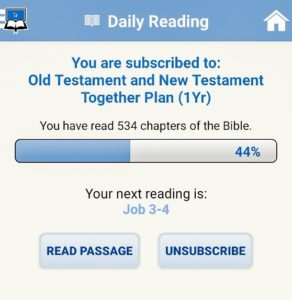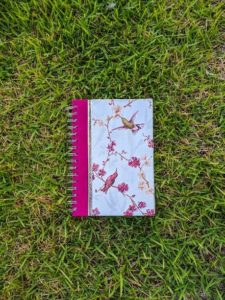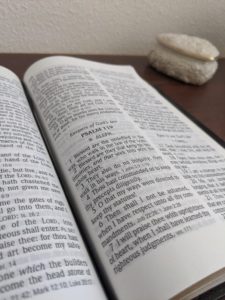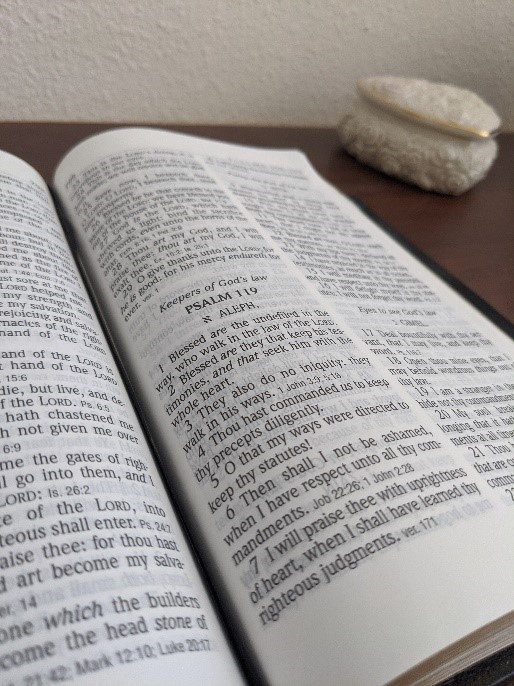Growing up as a Christian, I listened to sermons on Sunday mornings, read chapters and even whole books of the Bible, and memorized verses. It wasn’t until five years ago that I took on the challenge of reading the Bible in its entirety—cover to cover. Since then, I have even added on a daily chapter of Proverbs. I can honestly say that I am not the same person that I was before I started a yearly Bible reading regimen. I am wiser and braver, yet feel my need of God more distinctly. Wherever you are in your journey with the Scripture—whether you are a seasoned scholar, or you don’t even know where to begin—we all stand to gain by growing stronger in the amazing and transformative word of God!
1. Stay the course!
Ok, so my first “yearly” reading plan took a year and a half. I went a whole month having to double up on my reading each day to catch up, and had evenings where I listened to audio that I surely didn’t understand, just to get by. Was this the best way to delve into the scriptures? Of course not! However, I will tell you from experience that it does get better. Some of the most difficult elements of the Bible for me to understand included genealogies and any architectural details. My brain just didn’t work that way, especially when I encountered words that are not part of our language now. I looked up definitions. Then the word would reappear in the very next chapter, I’d have already forgotten what my research had said, and I would look it up again. The next year would roll around and I would glare at the term, thinking, I know I know what this means! Now, on my fifth time around, I am amazed and humbled at the amount of people, places, and terms that have clicked in my brain for good; how I can draw parallels from the different parts of the Bible and apply the lessons to my life. I am so thankful God helped me to persevere and have a more complete picture of His Story!
I do recommend that you try to put your Bible reading at the top of your day and priority list. I have been blessed doing so, despite encountering resistance in the form of sleepiness, anxiety of a long to-do list, and so on. I still need to do better at following my own advice—if I am honest with myself, if I really was really searching the scriptures as for hidden treasures, I could have dragged myself out of bed fifteen minutes earlier this morning! However, the pattern I eventually had success with was: Proverbs first thing in the morning (which helped me handle many stressors at my job!), completing half the reading during lunch, and the final half of the reading when I got home. I took breaks to work a full day and care for my family responsibilities, but I made a pledge to not touch social media or anything else nonessential until this task was finished.
2. Use the tools at your disposal.

Personally, I use the Blue Letter Bible App on my phone to read the Bible. You can select whichever plan is right for you. My first year I did the Old and New Testament Together Plan and found that I had some difficulty recalling the context from the day before. Doing the Canonical Plan the following year enabled me to really dig deep into each book of the Bible. This year I have switched back to Old and New Testament, and am enjoying exploring the fulfilled figures of the Gospel alongside the wonderful lessons in the Old Testament.
When you tap on a verse in the app, you can also see cross-references to other places where a phrase is mentioned in the Bible. I highly recommend first finishing up the rest of the chapter if you are having a difficult time understanding a portion of scripture. Sometimes with more information, the question answers itself! Then I would check the “Cross-References” section if you need more clarity about how a term is used. My other favorite feature is “Dictionaries,” and I prefer Easton’s Bible Dictionary for a quick briefing. If you really want to dig deep, Vine’s Expository Dictionary has hyperlinks to Strong’s Concordance. My last step if you can’t seem to get past an issue is to research commentaries. I usually speak into my phone “Gill” and then whatever verse I am looking at, and can find John Gill’s detailed exposition on any part of the Bible. He is extremely wordy, brilliant, but wordy, so if you’re not into that, simply search up commentary on your chosen verse and click around until you find a commentator you seem to connect with. If you are doing your reading primarily digitally like me, it will be simple to pull up a map of the land allotments of the tribes of Israel, or an artist’s rendering of the Tabernacle. I got used to the maps in the back of my physical Bible, so I just took some pictures of those with my phone and saved them in a special folder which I always have handy while reading.
All things considered, the most important thing is that you (#1) STAY THE COURSE! Don’t get overwhelmed. We are not God, with perfect understanding of all things. I find that most questions that bother me really aren’t that important in the grand scheme of things. Regardless, I don’t mind spending a little more time searching because I like to always be ready to answer for the hope that I have! Pray to the Father for understanding, and you will be amazed what new things you will discover that will become a part of you forever.
3. Enrich your reading.

Maybe you are at the point where you are in a steady rhythm and consistently read the Bible every day. Fantastic! But do you ever find yourself scrolling to the end of the page, checking off the box, and moving right along with your day, relieved you have one less thing to do? If so, then you need to focus more on the meditation stage of study. Don’t get me wrong, I believe that God sees and honors our efforts and faithfulness. However, he wants us to understand him and live a better life through his commands. This word needs to live through us. The only way this can happen down deep in a lasting way is through reflection! After reading a few chapters, I would always stop and think, what did I just learn? Making a simple summary in your mind can help you process and remember the reading. Also try and pinpoint one key takeaway that struck you the most.
This year, my sister has joined me in the same Bible reading plan, and I have enjoyed texting her about what we each got out of the reading. I have learned that if you can’t explain the text to someone else, even if it’s a passage you have read one hundred times, it requires deeper study. It may be difficult to slow down and work in this extra time during a busy schedule, but bear in mind that productivity often skyrockets when a worker is relaxed and at peace! Take a walk around the block, write a paragraph in your journal, or kneel down and pray, thanking God for the specific things that you learned in your reading.
One of my favorite activities I did one summer was to put myself in David’s shoes, writing a short poem from my heart for every letter of the alphabet as I worked through the psalms! If writing is not your thing, make a sketch, listen to music. Try to use the talents that God has given you to become rooted in his word. It is your lifeline as you go about your day, and you need to know it well.

Friend, I wish you the greatest blessing as you strive to delve deeper into God’s word! All of your hard work will reap a bountiful harvest. Don’t give up. You can do it. Remember that some of the greatest writers in the Bible had humble beginnings, and were called “unlearned and ignorant men” (Acts 4:13). It will be one of the greatest journeys of your life. This book was meant to be read and used (2 Timothy 3:16-17).
Do you have any other tips about how to enrich your Bible reading? I’d love to hear from you in the comment section below, and please share with a friend if you know someone who might benefit from this post!
Wanting to dig deeper into the Bible with your children? Click here for a separate list of suggestions.





0 Comments
Trackbacks/Pingbacks